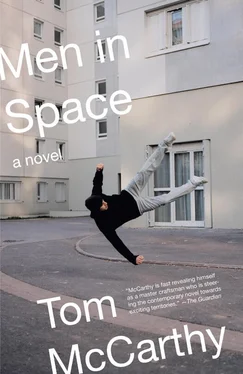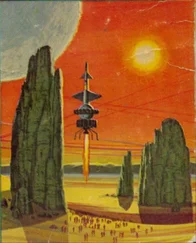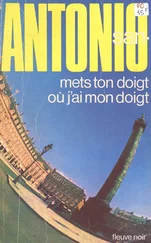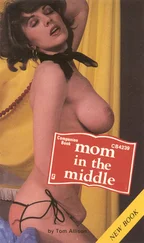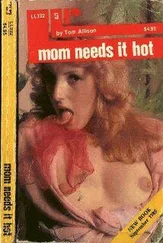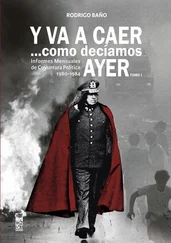Tom McCarthy
Men in Space
For Jean-Christophe Roelens
Despite the richness of their colour, it is the line that is the basic means of expression in the work of the Bačkovo masters. Executing a rigorous set of formal procedures, lines never allow themselves to become mere accessories to the expression of volume, to imply depth or to confer realism: instead, they help present the world they depict as unreal, flat and dematerialized. Using inverted perspective and multiple points of view which they place within the painting itself, the Bačkovo masters set up a continuous style that enables them to represent several moments of a story on a single panel. As for the human figures, their sensory organs are drawn out and isolated, relinquishing their biological functions as they become sanctified. Their faces, serene and concentrated, are not configured to produce dramatic effect, but rather to foreground their owners’ elevated sorrow.
Klárá Jelínková, Murals of the Bačkovo Ossuary (Unpublished MA Dissertation, AVU, Cz: 1986, pp. 8–9)
Here’s Anton Markov, sitting at a table, running his finger round a saucer’s rim as he watches his compatriot Koulin stride across the Malostranská Kavárna’s floor. Koulin takes bouncy, elastic steps. He swings his arms and hips round chairs and tables. He turns like an ice skater to glide backwards for two paces as he skirts around the waitress, a girl of twenty-odd. Wall-mounted mirrors, one on either side of the door from which he’s just emerged, the door that leads off to the toilets, render the event in triplicate: three Koulins — front, left profile and right profile, like in police mugshots. There are three waitresses too, three sets of background customers. Looking at the multiplying scene, Anton recalls his refereeing days in Bulgaria: the trick was to see all the near-identical shirts, repeated runs, sudden departures, switches and loop-backs as one single movement, parts of a modulating system which you had to watch as though from outside, or above, or somewhere else.
“So anyway,” says Koulin, sliding back into his chair and stretching his arm out across the radiator behind him, “this Yugoslavian’s place is in Prague Four, by Nusle. He lives on the fourth floor. Me and Milachkov thought we’d scare him by saying we’d throw him out of the window. So we turn up there and it’s him that opens the door to us, in a towel-robe. It must be about 10 a.m. Mila knocks him straight down and we pick him up, one of us at either end, and carry him towards the window. But while we’re lugging him there, this girl walks in out of the bedroom. And guess what?”
His eyes beam across the table, pink-flushed with excitement.
“What?” asks Anton.
“She’s naked,” Koulin tells him. “Really lovely body. Brown hair down her back. Small round tits. When she sees us she starts crying and screaming Oh don’t hurt him! Please don’t hurt him! I start to explain that we don’t want to hurt him but he owes Ili money for the cigarettes he’s selling on his patch, but she just cries and screams some more. The Yugoslavian’s all calm because he’s dazed from Mila’s punch, so he’s no problem, but this girl is kicking up a storm. And then …” He shifts his arm. “This bit is kind of difficult to explain exactly as it happened … Well, she pissed herself. But what I noticed is a kind of dribble — no, I lie, it wasn’t a dribble: it was more like a bag had burst just on the inside of her leg. A bag that wasn’t there before. Or like when someone throws a water balloon, you know, and it explodes. One solid mass. At least, it was solid till it hit the floor, one of those criss-cross floors, all wood, what do they call them? …”
“ Parquet . Parquetry.”
“Right: till it hit the parquetry. Then it broke. Really bizarre. Because she was naked there was nothing to interrupt its fall. And this girl, this beautiful naked girl just stood above it, screaming. I don’t know if she’d even noticed what she’d just done …”
Did Koulin tell a similar story about Anton, their first meeting? Did he slide into a similar chair — perhaps this very one — and, stretching his arm across the radiator, say to his friend Milachkov: So there’s me and Janachkov, and Jana’s itching to break this guy’s finger, got his finger in his hand, this short, smart-ass guy, maybe Jewish with the face he has. And Ili’s there too, and he starts explaining to the guy what he’s done wrong, importing all that pop and selling it bang in the middle of Prague without going through us, or anyone else for that matter … And behind the casual anecdote, Anton pinned against the wall rigid with fear, wishing he’d never noticed in the first place that Prague’s potraviny had been out of lemonade all summer, never suggested Zdeněk drive to Germany to get some, hoping Helena wouldn’t come home just then, hoping they’d just break his finger and leave it at that, not punch him in the stomach or the face, or at least not the balls, please not the balls — when suddenly he heard Ilievski speak to Janachkov in Bulgarian. Don’t break it just yet , he told him. Anton whined You’re Bulgarian! And Janachkov immediately let the finger go.
“What the …”
Ilievski here, speaking for all of them while they stood back and stared. It was as though shared nationality had embarrassed them out of hurting him. From then on it became like an engineering faculty dinner or one of those BFA post-match receptions. Ilievski asked him how he’d come to live in Prague, what he did beside (chuckling now) selling lemonade on other people’s patches without paying dues, what he’d done back in Bulgaria … They discovered that they’d both grown up in Dragalevtsi, and that Ili had had a considerable amount of money riding on the ’87 grudge match between Levski and CSKA, money which had doubled after Anton awarded a contentious penalty to CSKA in extra time.
“How much did you pay for the pop?”
“Ten Deutschmarks per crate.”
“Not bad at all. How would you like to work for me? I can offer …”
Anton accepted on the spot. That evening he went to the Bulgarian church on Ječná and lit a candle for whatever guardian angel — or neural impulse — had made him blow for handball four years earlier.
“… and then this second girl walks in,” Koulin’s saying, “though she’s not naked, more’s the pity. She tries to calm the first girl down. The parquetry’s not varnished, so the piss has made a big dark patch across it …”
Anton, still orbiting the saucer with his finger, pictures the patch, its jagged edges, the frightened girl above it. In his mind he pauses the scene, steps in, tells the girl It’s OK, just keep calm, things work themselves out , then, standing among them, regulates the other figures’ movement around the room: sends her friend to fetch a knee-length jumper for her, holds Koulin and Milachkov at bay beside the window while the Yugoslavian comes round, digs out some money, pays them … It works: the story ends without anyone else getting hurt. When he’s finished telling it, Koulin slides an envelope across the table to him.
“Passports?”
“Passports.”
Anton slips the envelope into a dossier he’s got with him. Ilievski, Koulin says, will be at the car market by Palmovka at eleven thirty.
“He told you that?”
“Yeah. I was with him last night. He wants you to meet him there.”
“OK, then. Let me …”
“I got that.”
Koulin flips the bill over, sliding his thumb up so that the paper slots between his right hand’s middle and index fingers.
Читать дальше
